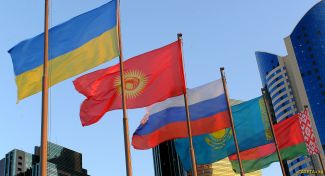
Schmidt & Schmidt covers the full spectrum of legalization services for documents issued in Bahrain.
Bahrain joined the Hague Convention on the Simplified Authentication of Documents on 10 April 2013; the Convention entered into force on 31 December 2013.
The apostille, or the “Hague apostille” is a certificate that authenticates the origin of a public document (e.g., a birth, marriage or death certificate, a judgment, an extract of a register or a notarial attestation). It confirms the authenticity of the signature and the authority of an official who signed the public document.
Documents issued in Bahrain are certified with an apostille in accordance with the Hague Convention of 1961 are recognized in all Member States of the Hague Convention and do not require any other form of certification, such as consular legalization, which considerably reduces the costs and time required for the certification of documents. So far, more than 120 states have joined the Convention.
The apostille is not sufficient for use in the states that are not party to the Hague Convention. In this case, consular legalization applies to a public document.
Designated Competent Apostille Authorities in Bahrain
The Ministry of Foreign Affairs in Bahrain serves as the sole designated Competent Authority for issuing apostilles. Their certification is essential for these documents to be recognized in foreign countries that are parties to the Apostille Convention.
To obtain an Apostille in Bahrain, you'll need to pay a fee of BD 20. You can visit the Legalization Office at the Manama Center or the Legalization Office at the Labour Market Regulatory Authority in Manama, or seek help from professional service providers.
The Ministry of Foreign Affairs will carefully examine the document to verify if the signatures, stamps, or seals align with their own records. If they are confirmed to be authentic, the document will be legalized by affixing an 'apostille' (an officially stamped certificate).
The apostille in Bahrain is a square stamp in Arabic or English with the obligatory heading "Apostille" and a reference to the 1961 Hague Convention in French (Convention de La Haye du 5 octobre 1961). The apostille certificate’s sides will be at least 9 centimeters long.
Types of documents
| Can be apostillized | Cannot be apostillized |
|---|---|
|
|
Specific aspects and document requirements for the apostille in Bahrain
Bahrain is among the 120 countries that recognize and issue apostilles in accordance with the Hague Convention of 5 October 1961. The apostille serves as a confirmation of the official status of a document.
The apostille process can vary depending on the sender and recipient country, but typically to obtain an apostille for a document in Bahrain, you must go through the following steps:
- Obtaining the original document to be apostilled;
- Verification of the signature on the document by the authorized body;
- Issuance of an apostille on a document by an authorized body;
- Submission of the document together with the apostille in the recipient country.
This process can be time-consuming, especially if it includes multiple documents and different countries. To ensure a smooth and accurate apostille process, it is recommended to seek guidance from specialists familiar with the requirements and procedures. Their expertise can help avoid delays and errors in obtaining documents apostille.
Document requirements that might apply:
- The document must be an original or a certified copy issued by the competent authority.
- The document should contain all relevant and accurate information.
- The document must be in the official language of the issuing country or translated into the official language of the country where the apostille is sought.
- The apostille must be affixed by the designated competent authority in accordance with regulations.
The apostille is issued in a uniform format. In Bahrain, it has the form of a printed sticker with a handwritten signature of an official, an official seal, and a hologram.
In cases where apostilles are not recognized, holders of foreign documents will need to legalize them instead. However, If the country of destination of the document recognizes and issues apostilles, then legalization is unnecessary.
Legalization of Bahrain educational documents for use abroad
For educational documents issued in Bahrain, such as school reports, university degree certificates, transcripts of records, enrollment certificates, and other school or university certificates, to be recognized and valid abroad, they must undergo an authentication process through legalization.
In general, the procedure for legalizing educational documents from Bahrain will start from governmental agencies responsible for issuing these documents authenticating the original copies. The documents must bear a stamp and signature accredited by the Ministry of Foreign Affairs, which is typically handled in the Ministry's Legalization Section.
Recognition of the authenticity of public documents
Bahrain has concluded the following international agreements:
- Trade and Economic Engagement: Bahrain actively participates in the global economy as a member of the World Trade Organization (WTO) and the Gulf Cooperation Council (GCC).
- Free Trade Agreements: Bahrain has established free trade agreements with numerous countries, including the United States, Singapore (GSFTA), and the European Free Trade Association (EFTA) States (comprising Iceland, Liechtenstein, Norway, and Switzerland).
- Regional Trade Access: Through its membership in the Greater Arab Free Trade Agreement (GAFTA), Bahrain enjoys duty-free access to markets in 17 Arab states.
- Investment Promotion: The country has signed agreements promoting and safeguarding investments with 34 nations, encouraging foreign and domestic investment.
- Taxation Agreements: Bahrain has proactively negotiated double taxation avoidance agreements with 41 countries, alleviating tax burdens on businesses and individuals engaged in international activities.
- Air Transport Cooperation: To facilitate international air transport, Bahrain has established reciprocal exemptions with six countries.
- Global Economic Collaboration: Bahrain is committed to fostering economic growth and development, evident through its engagement in economic, trade, and technical cooperation agreements with 31 countries.
Consular legalization of Bahrain documents for use abroad
Consular legalization is the process of authenticating or certifying a legal document so a foreign country's legal system will recognize it as with full legal effect that is carried out by the diplomatic or consular mission of the country in which the document is to be used.
This procedure is required when the destination country does not recognize or accept the apostille certification. One needs to submit the original document, along with any required copies or supporting materials, to the respective consular office. The consular officials will review the document, verify its authenticity, and affix their seal or stamp to certify its validity.
The consular legalization process may require additional steps like obtaining translations of the document into the language of the destination country or providing additional supporting documentation as requested by the consular office.
If the document originates from outside Bahrain, the document's owner must follow a two-step process: ratifying it at the Ministry of Foreign Affairs in the document's country of origin and then at an embassy or consulate of Bahrain within that country. It's essential to avoid making any modifications or additions to the document's information, as this could nullify the ratification.
It is up to the diplomatic mission to decide about the authentication procedure. The specific requirements and procedures for consular legalization may vary depending on the regulations of the destination country.
The main differences between an apostille and consular legalization of documents
The common feature between apostille and consular legalization is that they authenticate an official document for presentation to institutions in another country. However, they have many differences.
| Apostille | Consular legalization | |
|---|---|---|
| Legal effect | Can be used in all countries that are party to the Hague Convention on the Simplified Legalization of Documents. | Use between States one or both of which is not a member of the Hague Convention, or where one of the contracting States has protested the accession of the other. |
| Difficulty | Moderate. To obtain an apostille, contact the competent apostille authority of the state of origin of the document. | High. For consular legalization, various inland authorities and a diplomatic mission of the state of destination must be involved. |
| Pre-certification | Usually not required. | Is obligatory. |
| Attestation at the state of destination embassy in the state of origin of the document | No need to contact the Consulate of the country of destination. | Is the final step of legalization. |
Apostille and consular legalization in all cities of Bahrain
Schmidt & Schmidt provides apostille and consular legalization services for public documents originating from all regions across Bahrain. We handle the entire process, from document review to obtaining the necessary certifications, ensuring that your documents are valid and recognized internationally. With our reliable services, you can confidently use your Bahrain public documents abroad.
Procurement of documents from Bahrain
If the important documents are lost or damaged, or current copies of the documents are needed, the re-issue of the documents is required. It is not unusual for people outside Bahrain to encounter difficulties with obtaining new documents when abroad. Our consultants will help you procure new documents from Bahrain remotely, and we can arrange for your documents to be sent by courier anywhere in the world.
Certified translation of documents from Bahrain
Copies and transcripts of civil status documents can be translated into any language by a sworn translator in Bahrain or the translation can be done in the country of destination. We offer certified translations of civil status documents with further certification. The cost of the work is calculated according to the volume of the document in question.
Does the translation have to be apostillized?
Any foreign document issued in one country and used in another country must be legalized for use abroad. Therefore, the authenticity of a certified translation from Bahrain needs to be certified by an apostille. Consequently, many authorities may not accept certified translations from Bahrain if the translation has not been properly authenticated in Bahrain for use abroad. To avoid this confusion, translations should better be made in the state of the destination of the document.

























































